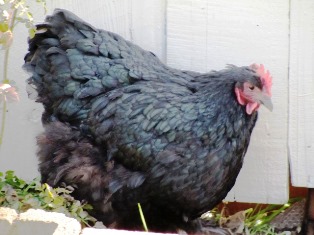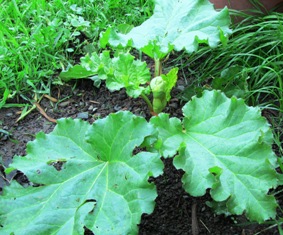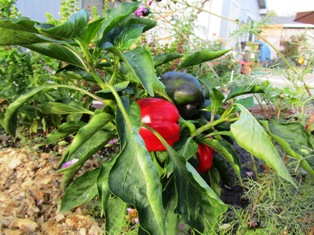Certain Plants And Chickens Don’t Go Together
Chickens are curious creatures. Spend a hour watching them scratch, poke, and peck and you’ll see what I mean.
I’ve never lost a free-range chicken because of something it ate; but it seems as though they’ll eat anything. It got me thinking that a variety of plants commonly grown in landscapes and backyard gardens could make chickens ill if they ate the berries, nuts, or leaves of those plants.
The following represents a small sampling of common plants that could make your feathered friends sick or even poison them.
- Acorn
- Alfalfa
- Azalea
- Daffodil
- Eggplant
- Foxglove
- Hemlock
- Jasmine
- Jimson Weed
- Lamb’s Quarters
- Lantana
- Milkweed
- Nicotiana (tobacco)
- Oleander
- Oxalis
- Poison Ivy
- Poison Oak
- Pokeweed
- Pyracantha
- Red Maple
- Rhubarb
- Sweet Pea
- Tulip
- Wild Onion
- Wisteria
Chickens are foraging birds and have good natural instincts. They will taste a plant and if something isn’t right, they’ll likely leave it. If you allow them to forage for themselves in pasture, more often than not, they’ll eschew the poisonous plants in your garden or landscape for the rich diversity of what they find in open pastureland.
Learning about GMO Food Safety
You might assume your zucchini and sweet corn is safe to eat but what if it was grown from GMO-treated seed, able to withstand an herbicide or even produce an insecticide as it grows? What happens in your gut when you eat that corn? What happens to animals fed such corn? These are questions that scientists, doctors, consumers, food safety advocates, and environmentalists all grapple with in their concern about GMO food safety.
The Non-GMO Project is a nonprofit organization concerned with GMOs and food safety. It explains on its Web site that a genetically modified organism (GMO) is a plant or animal that has been “genetically engineered with DNA from bacteria, viruses, or other plants and animals.” That means it is an anomaly in nature as such experimental combining of genes of different species does not occur in traditional crossbreeding or in nature (http://www.nongmoproject.org/learn-more).
Consumers might not be getting all the facts of what is known and what science is discovering about the health concerns of many Americans eating foods that contain GMOs. Estimates suggest that 80 percent of U.S. processed foods contain GMOs, meaning millions of Americans are eating foods that might not be all that safe to consume. Research into links between GMO consumption and ill health are ongoing but already GMO-altered foods, whether plants or animals, are raising health concerns.
Seed suppliers say that interest in non-GMO corn seed is growing among farmers because of lower costs, better animal health, and higher yields as well as increasing disenchantment with genetically modified traits of GMO seed (http://www.non-gmoreport.com/articles/january2013/Demand-growing-for-non-GMO-corn-seed.php)
With summer on the horizon, many people are planting seeds or seedlings in their gardens or are anticipating the plentiful vegetables available at produce stands and in supermarkets. But read the labels on all those mounds of squash, tomatoes, peppers, and potatoes.
Potatoes and tomatoes are considered low-risk for GMOs by the Non-GMO Project, that is, those two vegetables are not currently being genetically engineered. Although many people might think wheat is a concern, the Non-GMO Project states that wheat is not now nor ever has been genetically engineered, unlike soy, cotton, sugar beets, alfalfa, canola, zucchini, and summer squash.
More than 60 countries, including most of the developed nations, have banned or restricted GMOs. The United States is the exception, allowing production and sale of such products to continue. Consumers, scientists, and environmentalists opposed to genetic manipulation of plants and animals say avoidance and boycott of such products are consumer choices even as legal battles against bio-tech giants and anti-GMO advocates move through the courts.
As for summer corn, the best option might be to grow your own from heirloom seed that has not been genetically maniuplated. Otherwise, buy corn certified as non-GMO or from sources that support organic farmers and food sources such as Whole Foods and other organic markets. Check out the offerings for seed at Seeds Now (http://www.seedsnow.com/pages/shop-all-seeds).
 Facebook
Facebook Goodreads
Goodreads LinkedIn
LinkedIn Meera Lester
Meera Lester Twitter
Twitter








